StayingSafe
Experiencing a hurricane can be frightening.
But if you properly prepare, you’ll be safe – regardless of the storm’s severity.
1. Start of Hurricane Season
Create a preparedness kit and make sure it includes:
- Water (several days per person in your household)
- Nonperishable food (several days per person)
- Flashlights & lanterns
- Chargers & batteries
- Battery-powered or hand-crank radio (old-fashioned but useful if the mobile network is knocked out)
- Adapter that allows you to use your car as a power source (for minor things like charging phones)
- Essential documents (electronic copies on a flash drive)
- Gas can(s)
- First-aid kit
- Local maps
- Cash
These items sell out quickly in coastal areas so it’s best to get these weeks before hurricane season.
For more information, visit ready.gov
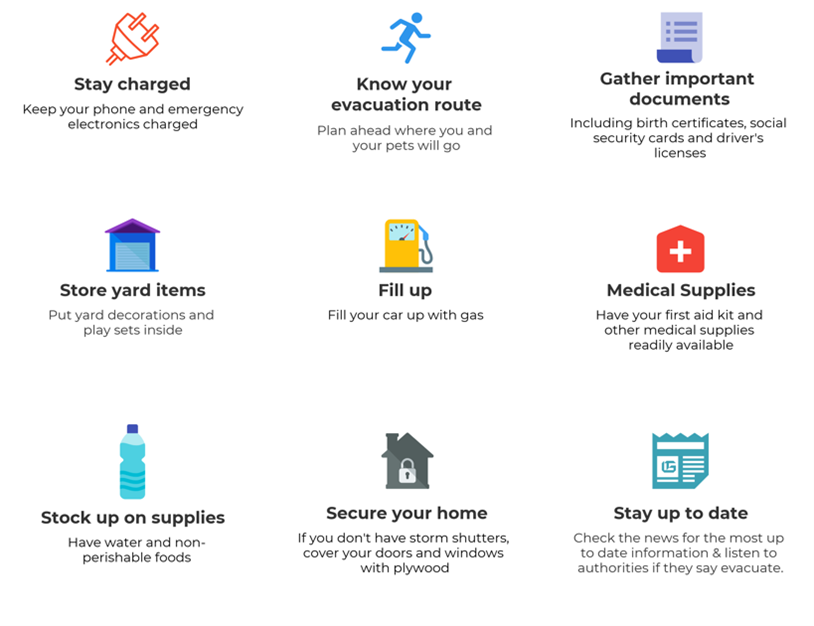

Know Your Home
- Know the elevation of your home. How many feet above sea level are you?
- Know about the construction of your home. Is it a mobile home or a house? If a house, is it up to code? Is the roof properly fastened?
- If you don’t have hurricane shutters, have the materials for covering your windows.
2. Before a Hurricane
Understand Watches and Warnings
- Hurricane Watch = hurricane conditions (winds 74 mph+) possible within 48 hours
- Hurricane Warning = hurricane conditions (winds 74 mph+) expected within 36 hours
Bring all loose objects inside.
These may include lawn furniture, garbage cans, tools, equipment, yard ornaments, toys, porch swings, etc. These items become dangerous airborne missiles in hurricane winds.
Other Preparations
Fill the tank of your car and have at least 5 gallons of extra gasoline on hand.
Cover your windows — either with hurricane shutters or plywood. Don’t bother taping windows — it’s an old tradition that’s not effective.
Evacuate your home and seek shelter elsewhere if at least one of these applies:
- Your home is not well-above the height of the forecast storm surge. Remember: Even if you’re miles from the coast, you’re still in danger if you’re at low elevation. Be mindful of potential inland river/stream flooding as well.
- You live in a mobile home.
- You live in a house that’s not up to code.
- You have family members with special needs.
- You’re instructed to leave by local officials.
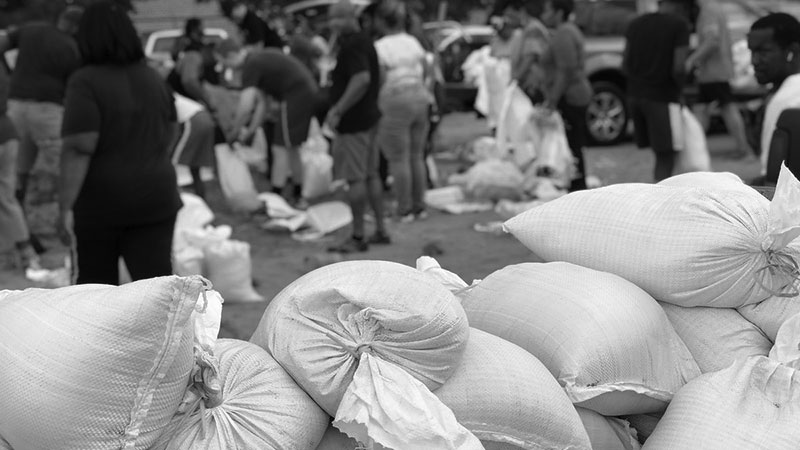
3. During a Hurricane
Stay inside, away from windows and doors.
Keep all windows and doors sealed shut and bolted. Do not open windows to “create ventilation” or “equalize the pressure.” This is an urban myth — it can actually do harm.
If wind damage starts to occur — for example, windows break, a door blows off, a wall caves in, or the roof rips away:
- Retreat to an interior room — like a bathroom or closet. (Get as many walls as possible between you and the outside.)
- Cover your head with a pillow or blanket.
- Stay low.
If storm surge inundates your house, get up to the second floor (if you have one). (If you prepared properly, you will not be in this situation, as you would have evacuated.)
Remain calm. Panic is contagious. Staying calm helps those around you — especially children.
If wind suddenly calms, you’re in the hurricane’s eye — the exact center of the storm. Stay indoors unless you have to make emergency repairs. Dangerous winds will return suddenly from the opposite direction — possibly in a matter of minutes.
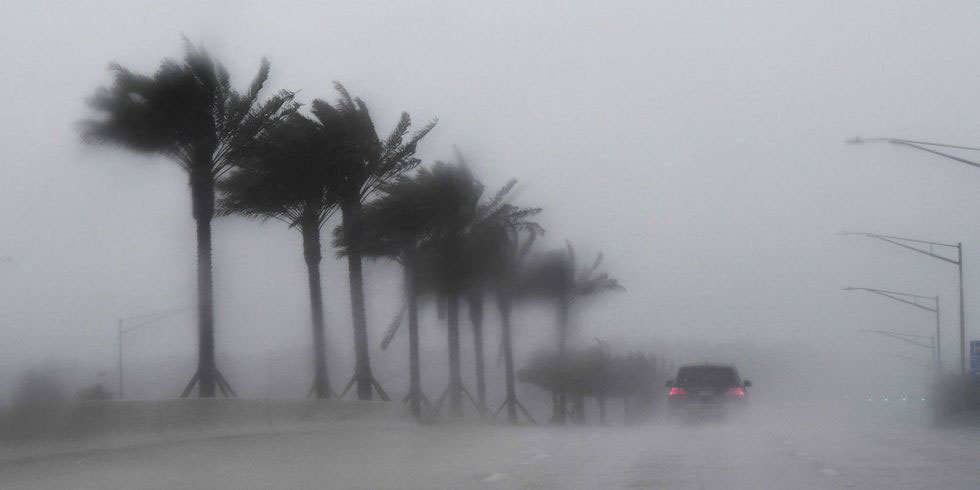
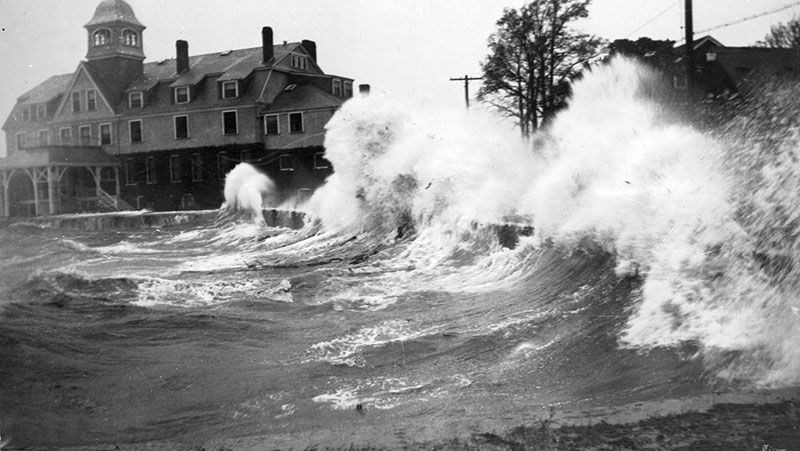
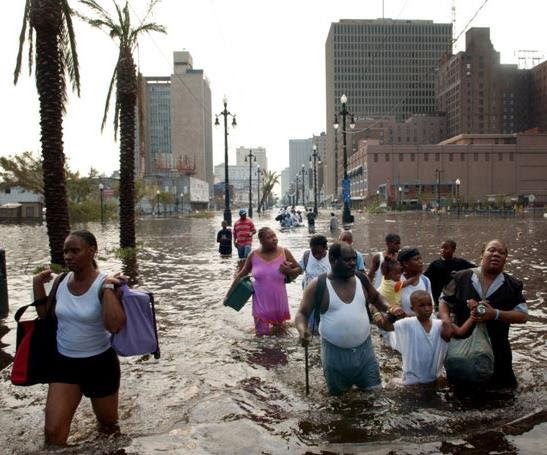
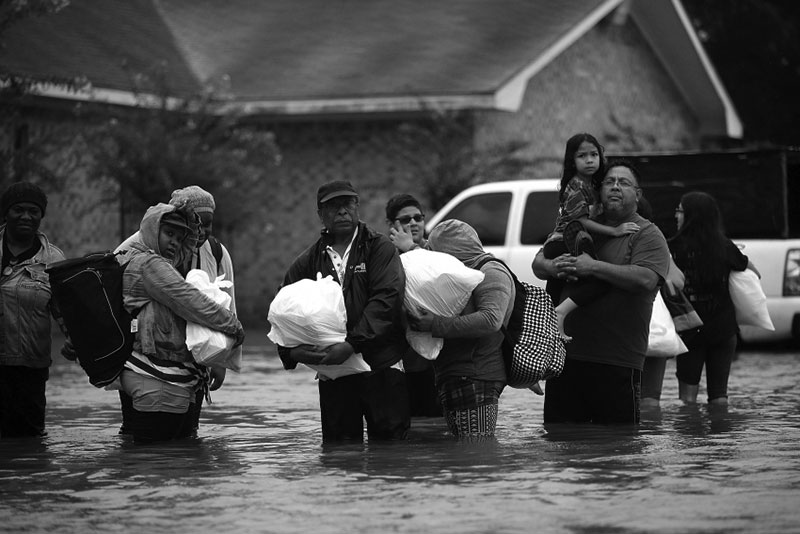
4. After a Hurricane
When you venture outside after the storm:
- Wear shoes with thick soles. Wreckage will have nails sticking out.
- Be on the lookout for downed wires — and don’t touch them. Electrocution deaths are common after hurricanes.
- Don’t drive into flooded intersections. Rule of thumb: if you can’t see the painted lines on the road’s surface, turn around.
Be careful near damaged buildings.
- Do not enter a damaged building until local authorities determine it is safe.
- Leave your home or building if you hear shifting or other unusual noises. These could mean the building is about to collapse.
Other Post-Hurricane Tips
- If you have a generator, make sure it isn’t a carbon-monoxide or fire hazard.
- Drink bottled water until you’ve confirmed the faucet water is safe.
- Don’t use candles. They’re a fire hazard, and at this day and age, we have so many options for generating light.
